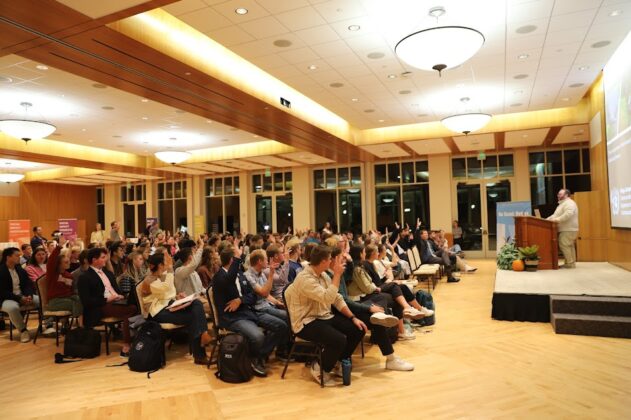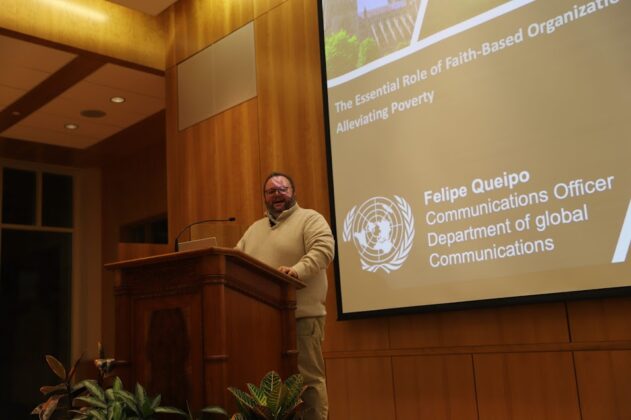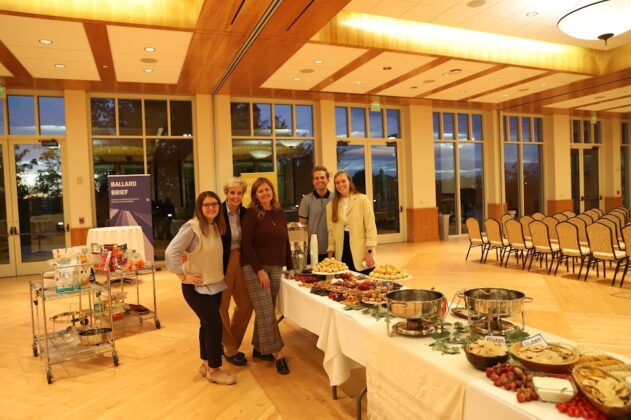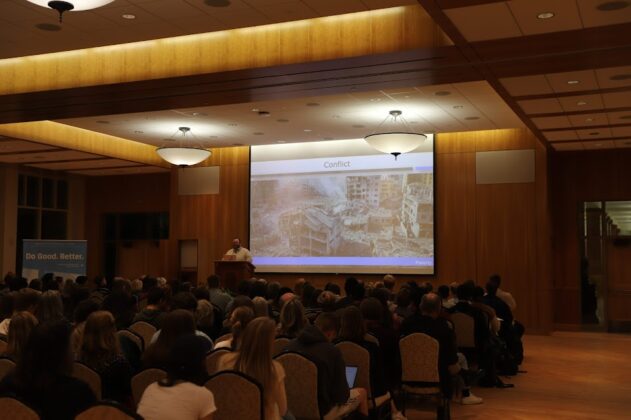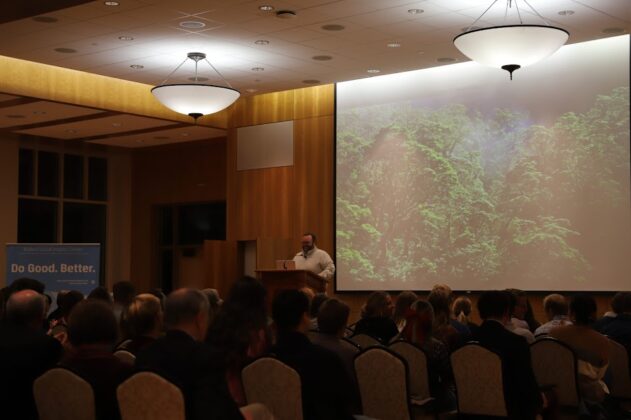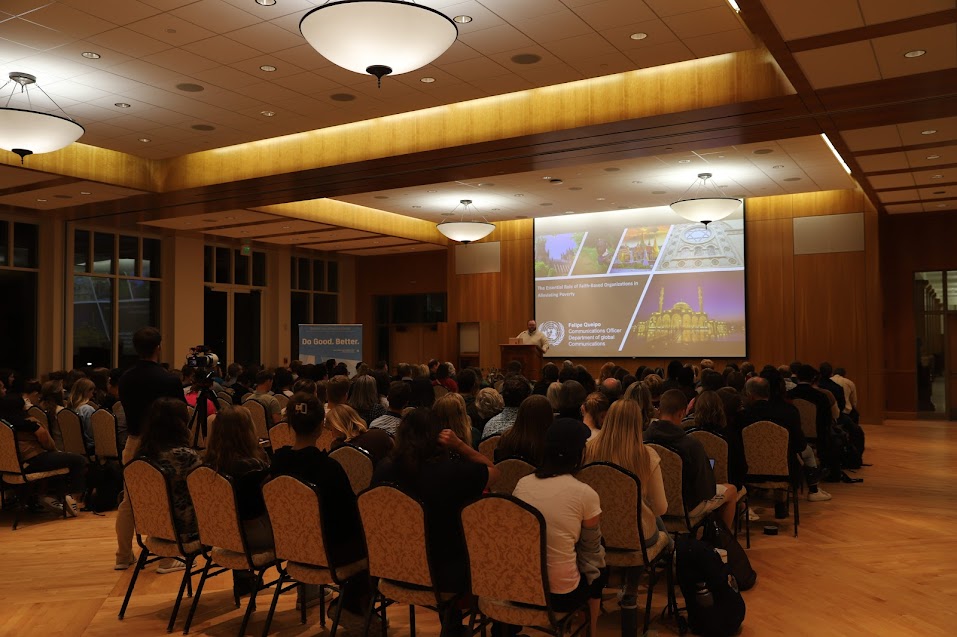
United Nations officer Felipe Queipo visited BYU on Oct. 25 to share his passion for and experience serving in the United Nations, and discuss how faith-based organizations can help alleviate poverty around the world.
Originally from Spain, Felipe Queipo was baptized into The Church of Jesus Christ of Latter-day Saints at 18 years old and served a mission for the Church in England, where he learned to speak English. Following his missionary service, Queipo graduated from BYU-Idaho. Queipo has worked for the United Nations for more than 14 years and said his faith in Jesus Christ and his core belief that all people are children of God are major driving forces behind his work.
“Imagine the task of servicing 8 billion people on this planet, and there’s only 125,000 of us working all over the world. It’s an impossible task,” Queipo said. “We engage with those that care the most, and those are usually faith-based organizations. Out of the active Civil Society Organizations we work with, around two-thirds, 66%, are faith-based organizations.”
While the United Nations has only been around for about 78 years, Queipo praised faith traditions such as Hinduism, Islam, Buddhism and others that have been helping people for thousands of years.
Queipo stated The Church of Jesus Christ of Latter-day Saints alone donated $32 million to the United Nations’ World Food Programme last year, the largest single donation toward refugees.
The United Nations has lost 35 colleagues to the conflict in Gaza. Those 35 colleagues, along with non-governmental organizations and faith-based organizations, Queipo said, are the real heroes in addressing poverty.
Queipo shared 13 causes for extreme poverty, among them being inequality and social injustice, conflict, hunger and malnutrition, lack of health systems, lack of employment, lack of access to clean water, sanitation and lack of education.
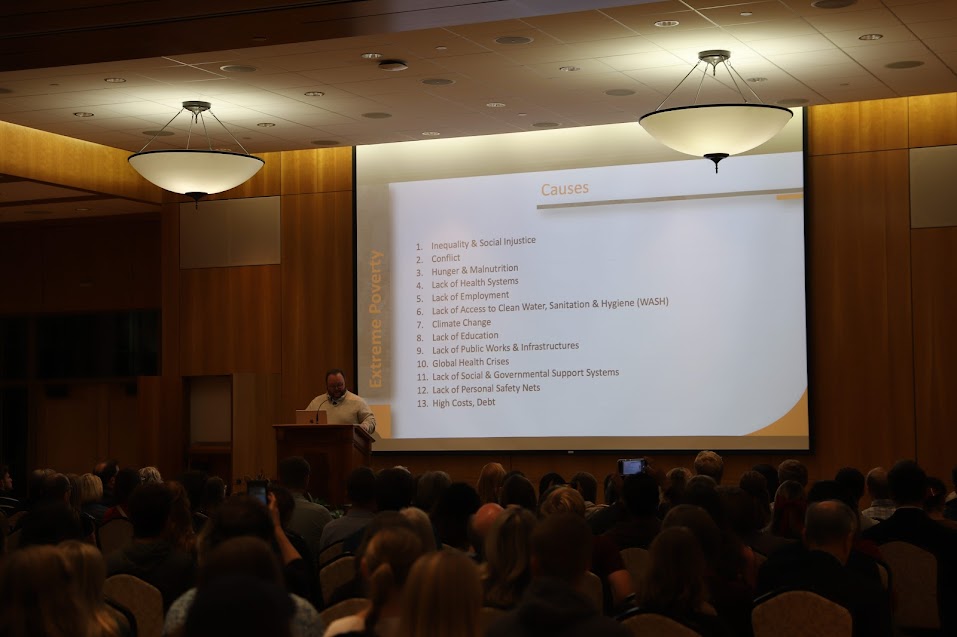
Queipo provided a variety of poignant examples for the causes listed. For the lack of access to clean water, he called attention to young girls in Somalia that have to walk miles, sometimes twice a day, to retrieve clean water from a well for their families.
“The time that they’re spending walking to the well and coming back, they aren’t getting educated. If they don’t have an education, it’s very unlikely that they’ll become local leaders. If they don’t become local leaders, it’s very unlikely they’ll become prime ministers, or doctors, or lawyers or simply caregivers, because they can’t,” Queipo said.
Queipo used this example to demonstrate how many causes of poverty blend together, oftentimes reinforcing one another. When speaking of the conflict in Israel, he shared while conflict generates poverty, poverty also tends to generate conflict, creating a vicious cycle. He also addressed how religion is frequently blamed as the source of conflict.
“There is no such thing at Islamic terrorism, there’s terrorism. Bad people creating terror, and use Islam as an excuse to do bad things. We have seen how some Christian groups have terrorized other groups in some countries, and we don’t call it Christian terrorism. We have to be careful with the language that we use,” Queipo said.
Queipo said the most valuable thing anyone can do serving in the United Nations and serving in the world is to treat people as fellow children of God. He also expressed becoming a good global leader starts with being a good leader at home, within one’s family and community.
“You have an obligation as members of the Church and a faith-based organization to look at people equally, to treat people with respect and love and charity … the whole motto that the Church uses of ‘What would Jesus do’ can also be translated into ‘What would God do’, and in many traditions, ‘What would Gandhi do’, and ‘What would Mother Teresa do,'” Queipo said. “Let’s make sure we become the very best version of ourselves because we put other people first, and we understand that when we are in the service of others we are in the service of our God.”
Adam Allen, a former BYU student from Boise, Idaho, first met Felipe Queipo during his mission in New York and was excited to attend Wednesday’s event. He described Queipo as being incredibly down-to-earth and service-oriented, and said he would often take him and his companions on tours of the United Nations headquarters.
Jacob Cuevas from Portland, Oregon, was also serving a mission in New York when he met Queipo. He echoed Allen’s statement in describing Queipo as a genuine person who loves to serve.
“You’ll never find anybody who cares more about his work than him, who is more passionate about his work than him. We had a chance to go to the UN, and every single person, you get off the elevator, it’s ‘Felipe, hi! How are you doing?’ He takes great pride in his work, and it shows,” Cuevas said.
Queipo’s message coincides with BYU’s mission to “Enter to learn, go forth to serve.” BYU students can find ways to serve on campus and in the local community through BYU’s Y-serve office.

